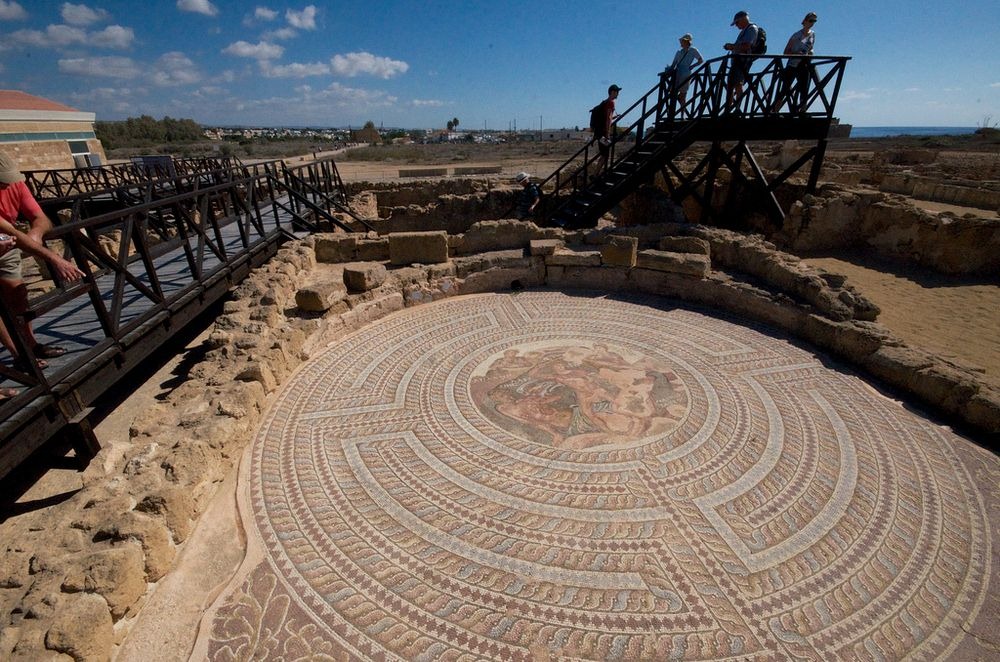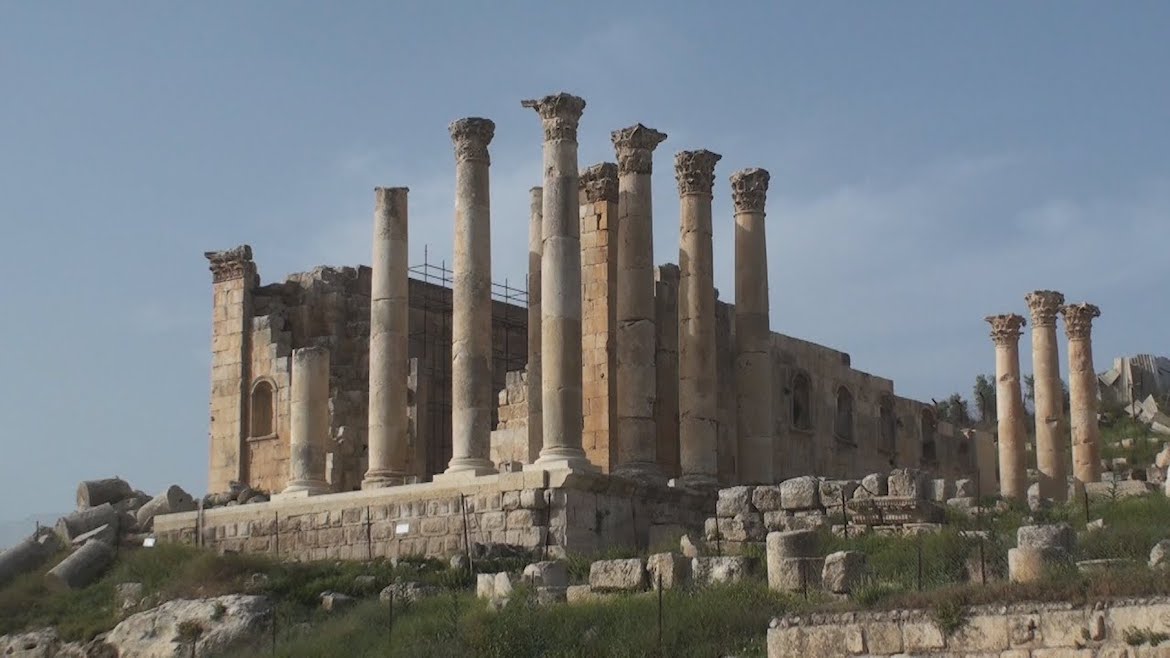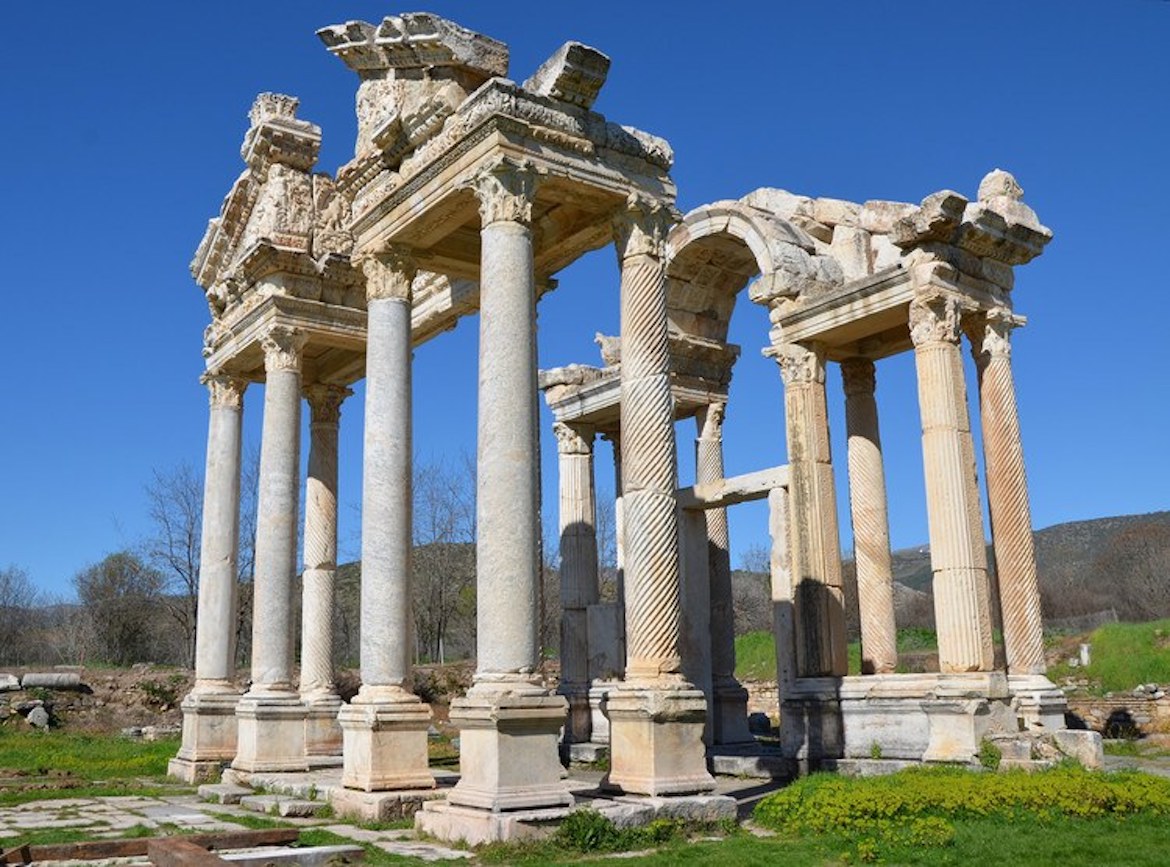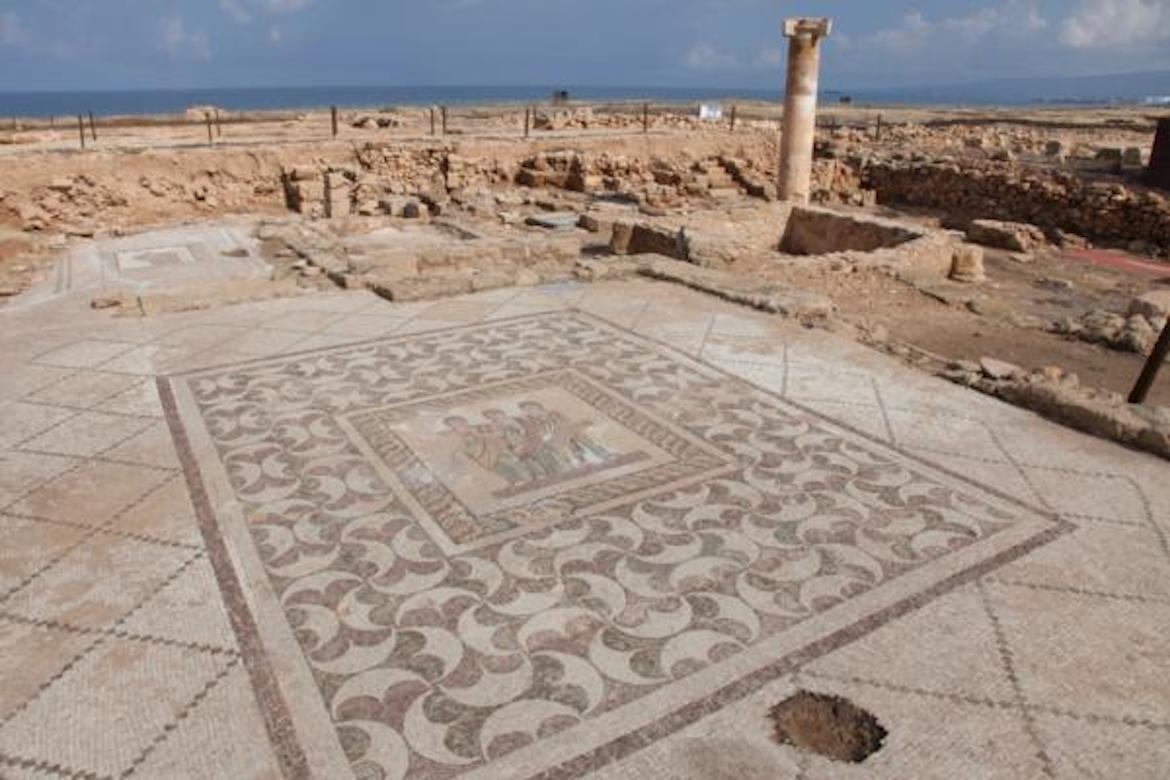The J. Paul Getty Trust announced plans to launch a $100 million, decade-long international initiative to preserve dozens of endangered cultural heritage sites — including various Greek projects.
Through the Getty Trust’s global partnerships, the initiative aims to raise awareness about how modern developments, economic pressures, mass tourism, political forces, climate change and violent conflict threaten ancient heritage sites
Scheduled to begin summer 2020, “Ancient Worlds Now: A Future for the Past” will explore the interwoven histories of ancient worlds.
The effort entails programs of scholarship, exhibitions, conservation and pre- and post-graduate education. Through 2030, it will engage global partners from schools, cultural institutions, non-governmental organizations and private companies.
Getty Trust President James Cuno said that the work is “urgent” and that “much is at stake” for cultural heritage preservation.
“In an age of resurgent populism, sectarian violence and climate change, the future of the world’s common heritage is at risk,” Cuno said. “Cultural heritage embodies a global community united by a common need to make things of beauty and usefulness, and to compose stories and rituals about humanity’s place in the world.”
The trust will incorporate the cross-disciplinary work of its four programs — Getty Foundation, Getty Research Institute, Getty Conservation Institute and the Getty Museum — in the effort.
“Getty is one of the leading global institutions committed to the study and preservation of ancient cultural heritage,” Getty Board of Trustees Chair David Lee said. “Its convening power and deep expertise allow it to effectively undertake an initiative of this magnitude.”
The Getty Museum recently launched a series of exhibitions and education programs related to the classical world that began with the exhibitions “Palmyra: Loss and Remembrance” and “Beyond the Nile: Egypt and the Classical World,” the latter a study of the influence of Egypt throughout the Mediterranean region. The museum plans to expand the aforementioned series with upcoming exhibitions focusing on ancient Mesopotamia, Persia, Thrace, Assyria and the Levant.
Other ongoing Getty activities include grant support for the digital mapping of excavations at the UNESCO World Heritage Site of Çatalhöyük, Turkey and conservation efforts in Southeast Asia.
Said activities also include a project at the Byzantine-era archaeological site of Nea Paphos and its necropolis on the island of Cyprus (also pictured in the top photo).

Planned Getty acitivities include support for a traveling research seminar on the art and architecture of ancient Thrace; a program for archaeologists from Turkey, Greece and Bulgaria to study the histories of ancient monuments and sites in Turkey; an international course on the conservation of earthen architecture to be held in Abu Dhabi; a book focusing on the intentional destruction of cultural heritage in pursuit of strategic and political objectives; and support for training at the Iraqi Institute for the Conservation of Antiquities and Heritage in Erbil, capital of Iraqi Kurdistan.
Irina Bokova, UNESCO’s former director-general, said the trust’s preservation efforts are “critically important” due to modern threats — e.g. political forces, climate change, etc. — that endanger the world’s cultural heritage.
“Such threats will require global partnerships, and the work of non-governmental, non-political organizations such as Getty to heighten understanding on a global scale of the importance of the world’s ancient cultures and common past,” Bokova said.
Former British Museum director Neil MacGregor will serve as a consultant to the “Ancient Worlds Now: A Future for the Past” initiative.
“Human history is inevitably a history of entanglements and networks, of overlapping economic, political and cultural developments,” MacGregor said. “In today’s sectarian violence, the complexity of the past is distorted through ideological manipulation, neglect and destruction.”
He added: “Getty’s bold new initiative will address this by developing an understanding that the world’s cultural heritage is our common heritage and that it continues to shape us all.”
Greek-Built Heritage Sites Included
Is The Pappas Post worth $5 a month for all of the content you read? On any given month, we publish dozens of articles that educate, inform, entertain, inspire and enrich thousands who read The Pappas Post. I’m asking those who frequent the site to chip in and help keep the quality of our content high — and free. Click here and start your monthly or annual support today. If you choose to pay (a) $5/month or more or (b) $50/year or more then you will be able to browse our site completely ad-free!

Click here if you would like to subscribe to The Pappas Post Weekly News Update




1 comment
I was the invited introductory speaker at the Oxford Union in Nov. 2016 at a debate for the return of artefacts looted in colonial times. I spoke of course for the return of the Parthenon Sculptures to Greece. To their credit, the British university and invited luminaries audience voted in favour. One of the two speakers AGAINST the return of stolen and looted items in foreign museums was Dr James Cuno, the CEO of the Getty Foundation. (See his speech on YouTubehttps://youtu.be/gmY6tkTBaks ) I would, therefore, advise my fellow Greeks to be particularly cautious about rejoicing at the announcement of the Getty Foundation donation “to preserve Greek sites” and ask what is behind this. I will remind readers c. 1990 Dr Marion True, director of the Getty Museum, whom I met in Moscow at that time , was discovered to be in possession of an illegally excavated and acquired (among other artefacts) golden wreath, which together with Minoan double-headed axes are perhaps the most valuable ancient Greek artefacts. Ms True was never tried in Greek courts and the case against her and the Museum was dropped after the Museum gave back two kouri statues to Greece amid great fanfare in the media. Beware then fellow Greeks as to why the Getty Foundation is now so interested in preserving Greek archaeological sites when their CEO is on public record and argued against the restitution of our looted national and cultural symbol, the Parthenon Sculptures in the British Museum.
Alexis Mantheakis, chairman of the International Parthenon Sculptures Action Committee http://www.ipsaci2.com